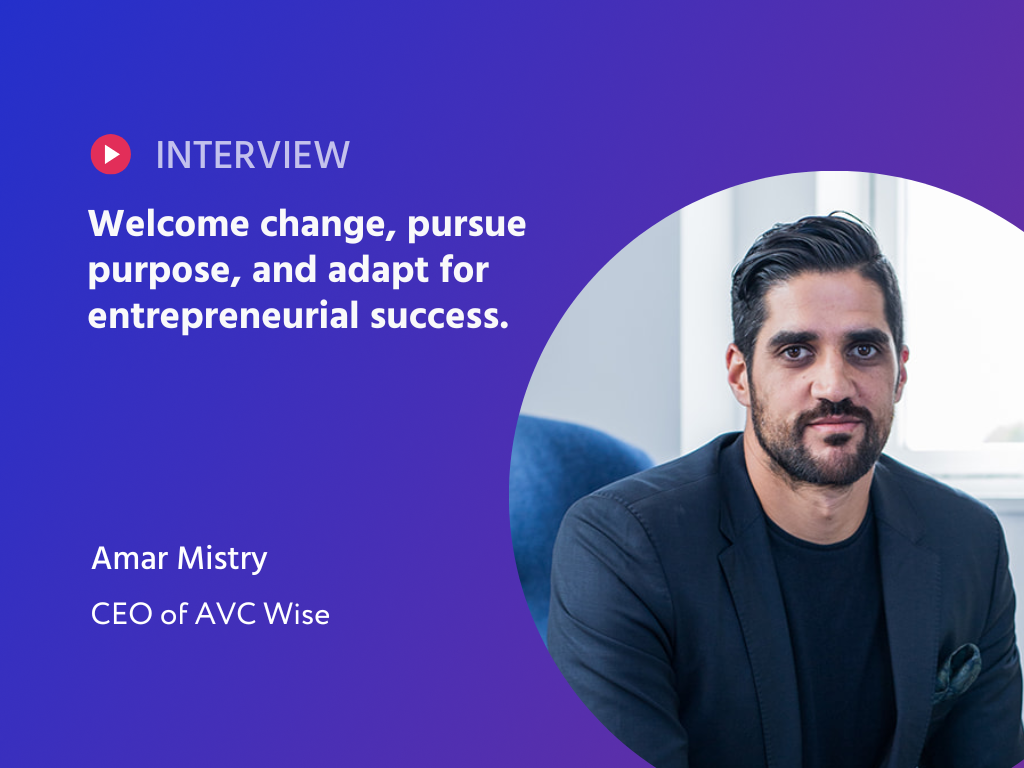In this exclusive interview for The Bright Founders Talk at Temy, we delve into the fascinating journey of Nadir Izrael, the co-founder and Chief Technology Officer of Armis Security. As a visionary in the cybersecurity field, Nadir brings a wealth of experience and a deep understanding of the industry's nuances.
Today, he shares his unique story, starting from his early coding days at the age of twelve to becoming a key figure in enterprise-level cybersecurity. His career has been marked by stints at prestigious organizations such as Google, and an enriching experience in Israel's military programming units, which is almost a rite of passage for many tech entrepreneurs in the country. Throughout the interview, Nadir discusses the challenges and triumphs of starting Armis Security, emphasizing the critical importance of cybersecurity in today's digital age.
He also touches on his personal growth and his continual passion for technology and innovation. Join us as Nadir Izrael provides insights into his professional path and the evolving landscape of cybersecurity, shedding light on what it takes to succeed in this dynamic and ever-important field.
From Childhood Code to Cybersecurity Captain: The Tech-Driven Journey of Nadir Izrael
Nadir Izrael's tale is one of early passion and continuous curiosity. His tech journey started unusually early, ignited by a gift from his father—a programming book that would pave the way for his future. "As a kid, I was about as nerdy as you could get. I got into programming after I dismantled and reassembled our home computer," Nadir shares, his eyes lighting up at the memories. These early experiments weren't just pastimes; they were the beginnings of a lifelong dedication to technology.
As a kid, I was about as nerdy as you could get. I got into programming after I dismantled and reassembled our home computer
The tech bug bit Nadir hard and early. By the time the internet was just spreading its wings, Nadir was already deep into coding, riding the first waves of the .com boom. His after-school programming courses weren't just afterthoughts—they were stepping stones to a deeper understanding of what would become his career. "It was an exciting time to learn," he recalls. This foundation not only gave him a solid start but also a clear vision of his path forward in the tech world.
Nadir's journey through the realms of tech led him to significant stints at places like Google and, notably, in Israel's military tech units, giving him a front-row seat to the evolution of cybersecurity. "I've always wanted to start a company," Nadir admits, reflecting on his shifts from programming to entrepreneurship. His adventures through technology and foundational roles in cybersecurity culminated in the creation of Armis Security, where he continues to influence the industry profoundly. "Once you find your passion, it's all about pushing the boundaries," he reflects, encapsulating his philosophy towards both life and technology.
In the Trenches of Innovation: Nadir Izrael's Recipe for Start-Up Success
Nadir Izrael, the co-founder and CTO of Armis, emphasizes the foundational aspect of startup success: choosing the right co-founders. "Founding a startup is first and foremost about who your co-founders are," Nadir explains, highlighting the importance of partnership over mere business ideas or market potential. His journey with Armis began not in isolation but through a critical partnership with Yevgeni, a former lead at a startup acquired by Microsoft. Their synergy was pivotal, and together, they embarked on a mission fueled by genuine market needs rather than speculative ideas. This approach, asking chief information security officers directly about their challenges, not only set Armis on a path to success but also revolutionized how they approached product development.
Founding a startup is first and foremost about who your co-founders are
Diving into the operational side, Nadir shares the unexpected and constant challenges of navigating a startup's landscape. The romantic notion of a startup—turning a garage idea into a market explosion—is far from reality. Instead, he points to a journey filled with unforeseen hurdles where adaptability and a love for problem-solving are crucial. "The reality is, it's always hard, and then some," he says, stressing the importance of resilience and comfort with uncertainty. For Nadir, the real thrill lies in maneuvering through these challenges, constantly questioning the path forward, and maintaining agility in response to ever-evolving market demands.
Reflecting on the evolution of Armis, Nadir discusses the importance of staying attuned to what customers truly need—a practice that remains central even as the company grows. "Does anyone care? Is what you're trying to build even relevant?" These questions are at the heart of every decision and iteration at Armis. Recognizing that product-market fit is not a one-time achievement but a moving target is key to their sustained growth. For Nadir, this ongoing dialogue with the market is not just a business strategy but a passion, underscoring that the journey of innovation is never static but a dynamic and exhilarating pursuit of solutions that resonate deeply with client needs.
Navigating the Cyber Storm: How Armis Security Stays Ahead in an Evolving Market
As the cybersecurity landscape morphs with the rapid evolution of technology, staying ahead of the curve is a daunting task for any company. Nadir Izrael, co-founder and CTO of Armis Security, articulates this challenge with the precision of a seasoned expert. "Cybersecurity is a unique market that has been resilient and continuously growing for the last two decades," Nadir notes. He attributes this growth to the ever-changing IT landscape and the sophisticated adversaries that drive the need for robust security solutions. From the advent of smartphones to the complexities of cloud computing and AI, each technological leap has expanded the perimeter that security companies must defend.
Cybersecurity is a unique market that has been resilient and continuously growing for the last two decades
Nadir emphasizes that understanding these shifts is key to predicting and responding to emerging security needs. "Security targets are constantly shifting as IT evolves, necessitating new solutions," he explains. This dynamic environment is further complicated by the geopolitical landscape, which fuels cyber threats ranging from criminal activities to state-sponsored attacks. Armis responds by continuously developing innovative strategies that not only address current threats but also anticipate future challenges. This proactive approach involves deep analysis of IT trends and competitive dynamics, enabling Armis to position itself effectively within the market.
Reflecting on the business strategies within the cybersecurity industry, Nadir discusses the distinction between feature companies and platform companies. "You need to decide early on what type of company you want to build," he advises, highlighting the importance of strategic planning in determining a company's trajectory. For Armis, the choice was clear: to build a robust platform capable of withstanding the pressures of market consolidation and changing security demands. This strategic clarity has allowed Armis to not just survive but thrive, adapting to the cyber storm with agility and foresight. Nadir's vision for Armis is encapsulated in his approach: "It’s about predicting changes and being ready before they occur," a strategy that has positioned Armis as a leader in the cybersecurity space.
AI and Cybersecurity: Armis CTO Nadir Izrael on the Frontier of Digital Defense
The advent of artificial intelligence is revolutionizing every sector it touches, but perhaps none more critically than cybersecurity. Nadir Izrael, CTO of Armis Security, reflects on this seismic shift with both awe and a clear-eyed view of the challenges ahead. "AI will transform everything we know about IT and security," he asserts. Izrael envisions a world where AI doesn't just automate tasks but redefines how we interact with data entirely, proposing a future where interfaces themselves become obsolete, tailored instantaneously by AI to fit our contextual needs. This concept extends beyond convenience, entering a realm where every piece of data could be turned into an intelligent, interactive entity.
AI will transform everything we know about IT and security
As AI reshapes the landscape, it also brings formidable challenges, particularly in cybersecurity. Izrael highlights the dual-edged sword of AI: while it can significantly enhance defensive capabilities, it also powers sophisticated AI-driven attack platforms. These platforms could potentially overwhelm traditional human defenses, signaling a need for a radical evolution in security strategies. "We're starting to see AI attack platforms that can quickly overwhelm human defenders," Izrael notes, underscoring the urgency for cybersecurity frameworks to adapt rapidly to keep pace with AI's capabilities and threats.
Looking towards the future, Izrael contemplates the implications of these changes not just for security but for the entire IT industry. With AI, the traditional methods of securing data—hoarded in secure repositories for human consumption—are becoming obsolete. This shift, according to Izrael, will lead to a "period of very rapid evolution" in the tools and landscapes used by both consumers and companies. The stakes are high: evolve and adapt to the brave new world of AI, or risk obsolescence. "It's either advance into a brave new world of AI that might change what you do entirely, or die," Izrael states, capturing the pivotal moment facing today's digital landscape. This dramatic transformation promises to redefine industries and security practices in profound ways, presenting both colossal challenges and unprecedented opportunities.




